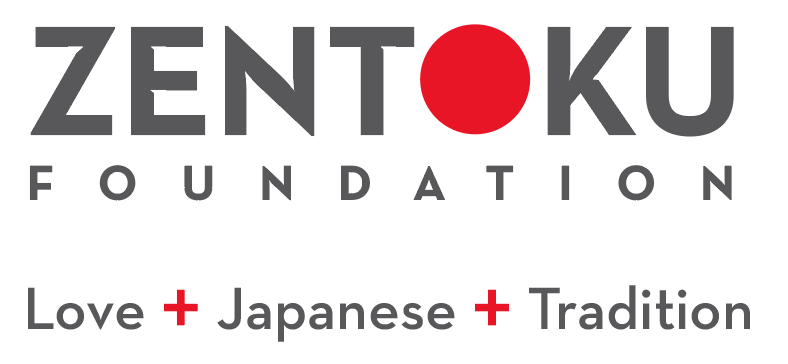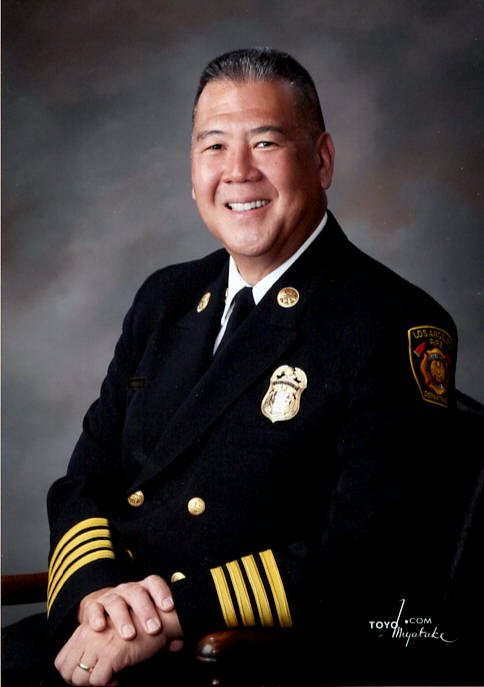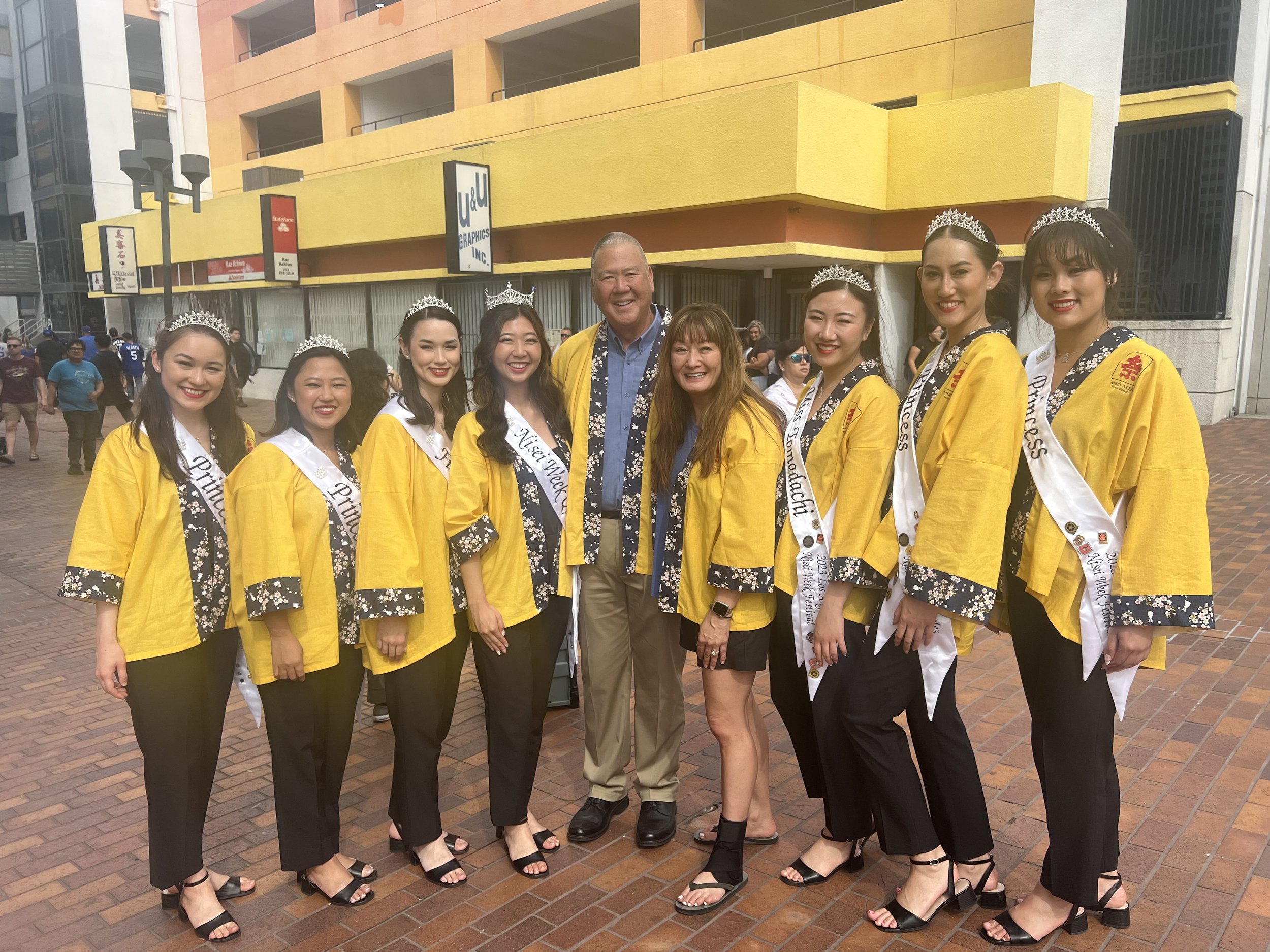David Yamahata: From Studying Dentistry to Being the First Japanese American Fire Captain
By Soji Kashiwagi
Little Dave
In the eyes of many Nisei parents, being “successful” in life meant their Sansei children had to become a lawyer or doctor or someone in the medical profession.
“My uncle was a dentist,” said David Yamahata, “so I studied pre-dental at UCLA.”
This was back in the early 1970s when Sansei like Yamahata were under intense pressure to go to a good school, get good grades, get a good job, get married, have kids and have a good life as a doctor or lawyer—everything their parents dreamed of doing for themselves, but couldn’t due to losing everything in “camp.” Due to rampant hate and discrimination after camp. Due to doors being closed and slammed in their faces. Due to all this, Nisei dreams were shattered. Gone.
Kyusei and Mieko “May” Yamahata
Yamahata’s parents, Kyusei and Mieko “May” Yamahata, met as teenagers at the Tule Lake concentration camp in Northern California. After the war, Yamahata's father, who was from the Sacramento area, followed his mother back to her hometown in Southern California, and they settled in LA’s Crenshaw district, one of the limited areas where returning Japanese Americans were allowed to live after camp.
Like many Nisei, Kyusei Yamahata got a job at the LA produce market; his wife worked in medical records at a nearby community hospital. Together, they had four sons. David was their second, and they had high hopes in him becoming a successful dentist.
“Back then, my parents really never wanted to talk about camp,” Yamahata said. “They wanted to leave that behind them and move forward and integrate into the American way of life. They told me to ‘work as hard as you can and don’t let anyone tell you you can’t be successful.’”
With these high expectations, the pressure on Yamahata steadily increased as he realized that his dental studies were much more difficult than he had anticipated, and the competition to get into dental schools was fierce.
“I applied to 20 dental schools across the country, and didn’t get accepted into any of them,” he said. “I ended up changing my major and graduated with a degree in biology.”
Up until then, his work experience had been limited to various part-time jobs back in his old neighborhood: Clark’s Drug Store, Food Fair, Pioneer Chicken, a veterinarian and an auto parts store after college.
Then, in 1976, his roommate told him the Los Angeles Fire Department (LAFD) was under a consent decree to hire more minorities.
“You want to apply?” he asked.
When Yamahata found out that firefighters' pay far exceeded what he was making at the auto parts store, he was down for the challenge.
To become a member of the LAFD, you had to pass three tests: written, physical agility and in-person interview. Yamahata was confident he could pass the written and oral tests; the physical, however, would require some work.
Graduated LAFD Academy with Dad
“I grew up in an era of drink in one hand, cigarette in another,” Yamahata said. “I started running and almost keeled over and died after a half a mile.”
He stopped drinking, quit smoking and trained for the physical agility test for a year. On the day of the test, only two out of 12 passed. Yamahata was one of them. He then scored 98.7 on the oral interview, and in February 1977, it was official: He was a firefighter with the LAFD.
“The first thing my mom said was, ‘Oh, you’re going to be a paramedic!’ still wanting me to be part of the medical profession, and I said, ‘No, mom, I’m going to be a firefighter.’ And I could see the disappointment on her face.”
But despite her disappointment, he joined up at age 24 and was one of only five Japanese Americans in his class. Prior to that, there were only four Japanese Americans out of 3,500 LAFD members.
“It was not a profession sought out by Japanese Americans,” he said.
And early on, being one of only a few Asian Americans was not easy.
“I was called a gook, a chink, a Jap and everything else,” he said. “It was upsetting, but at the same time it wasn’t going to prevent me from being successful.”
This was, after all, his first real job, a job he had fought and trained for, and he wasn’t going to give up now.
“I had this mentality—they could do whatever they want, but they were not going to get rid of me.”
In fact, he used the racism he faced as an incentive to get better, to study and learn more, and to be one step faster and one step higher until one day he could look down on all the haters and say, “I’m going to be YOUR supervisor!"
Deputy Chief
And sure enough, that’s what happened. Thanks to being around guys who were highly motivated and highly competitive, Yamahata worked his way up and after 3 1/2 years he was promoted to an apparatus operator and then moved quickly through the ranks as the first Japanese American fire captain, then battalion chief and assistant chief. Over a 36 1/2-year-career, Yamahata amassed broad experience including field operations, dispatch, employee relations, chief of staff and division command.
In between promotions, he continued his education and earned a master's degree in emergency services administration from Cal State Long Beach, which led him to be more competitive for promotions to higher ranks. His eventual promotion to chief deputy of emergency operations, second in command to the fire chief, made him the first Japanese American to achieve this rank in the 137-year history of the LAFD.
All this for a guy who was supposed to be a dentist.
“It was a fluke that I became a firefighter,” he said.
“Its a non-traditional job, but if you don’t want to work behind a desk, enjoy getting your hands dirty, want to be part of a team, and are looking to do physical activity, then firefighting might be a job for you. But I always tell people, you can get hurt. You can also get killed.”
But he added that being out in the public and being able to help people are some of the many rewards of the job. The firefighter’s non-traditional work week is another perk.
“You work 24 hours, then you’re off 24 hours, then you work another 24 hours and then you have the next four days off,” he said. Those four days, he added, can be used for short vacations, or allows the firefighter time to get a lot of personal things done during weekdays when everyone else is busy working their 9-to-5 jobs.
And then, of course, there’s the adrenaline rush.
“My first fire was a fully inflamed auto repair shop at 3 a.m. I was on the hose line, and it took us about an hour to put it out. I lost five pounds in that one fire. But you have to have a certain mentality. For me, it was an adrenaline rush to go into a fire and put it out, saving property and hopefully saving lives. It was a great satisfaction to be able to do that.”
He also said every day was different, and you had no idea what to expect.
“It could be a paramedic call. A house fire. A brush fire. An apartment on fire. Anything you can think of, there was a potential it might happen.”
Because of this, training was extremely important, and the firefighters trained a lot. “During an emergency, you fall back on what you’ve been taught. We worked in pairs so you always had someone with you in case something happened,” Yamahata said.
Friendships and relationships also mattered. “You become very close to the guys you work with,” Yamahata said. “You’re with them 24 hours a day. You get to know them better than your own family.”
Helen and David
Speaking of family, Yamahata has three children from a previous marriage, and now lives with his wife, Helen, in the San Gabriel Valley. At age 71, he’s been retired from the LAFD for 10 years, but still serves as a consultant and speaks at fire departments across the country. For the past 10 years, he’s served as a board member and president of the Nisei Week Foundation, and represents the LAFD in the annual Nisei Week Parade held every summer in Los Angeles’ Little Tokyo.
Incoming Nisei Week president Joann Cordeiro said that Yamahata brought a lot to the table as Nisei Week president.
“With David’s many years of working for the LAFD, he is community-minded and knows how to effectively lead a diverse team, as well as encourage and support our board members and volunteers,” Cordeiro said. “He also brings a sense of calmness, even during the most hectic times of planning.”
Nisei Week 2023 Court
Before becoming Nisei Week president in 2024, Cordiero said Yamahata was with her every step of the way.
“Early on, during his term, he included me in the planning process, sharing knowledge along the way and connecting me with key people during Nisei Week to ensure a seamless transition,” she said. “I’m grateful to have his continued support and guidance as he plays an integral role in the foundation and festival.”
Fellow Nisei Week board member Helen Ota added that Yamahata also brought a vision for the future.
“One of David's main accomplishments was bringing the board together to work on a plan to ensure the Nisei Week Foundation and Festival continues to thrive for the future,” Ota said. “We started the process just before the pandemic and we were able to complete the planning process in 2023. David's leadership, as well as everyone's efforts, helped ensure that Nisei Week will continue to grow and be a significant part of our culture and community.”
Despite all his accomplishments, Yamahata just sees it as his way of giving back to the community he grew up in.
“As a kid, I remember going to Nisei Week every year,” he said. “I also see my involvement as being an example for my kids to stay connected to our culture, and to not forget where we come from.”
May Yamahata’s (Mom) 96th Birthday
His mother hasn’t forgotten. She lives in a nearby assisted living home.
Yamahata's mother and her friends have seen the fire chief recognized in the pages of the Rafu Shimpo and on local TV news during one of his many appearances as a high-ranking LAFD official.
Because of this celebrity, May Yamahata, who will turn 99 next year, can finally look back and say her son did good, and that she’s proud of his career—not as a dentist, but as a firefighter with the LAFD.
Note: If you or someone you know is interested in a career as a firefighter, contact the Zentoku Foundation and they will connect you with David Yamahata, who said he’d be happy to talk to anyone who is interested.









